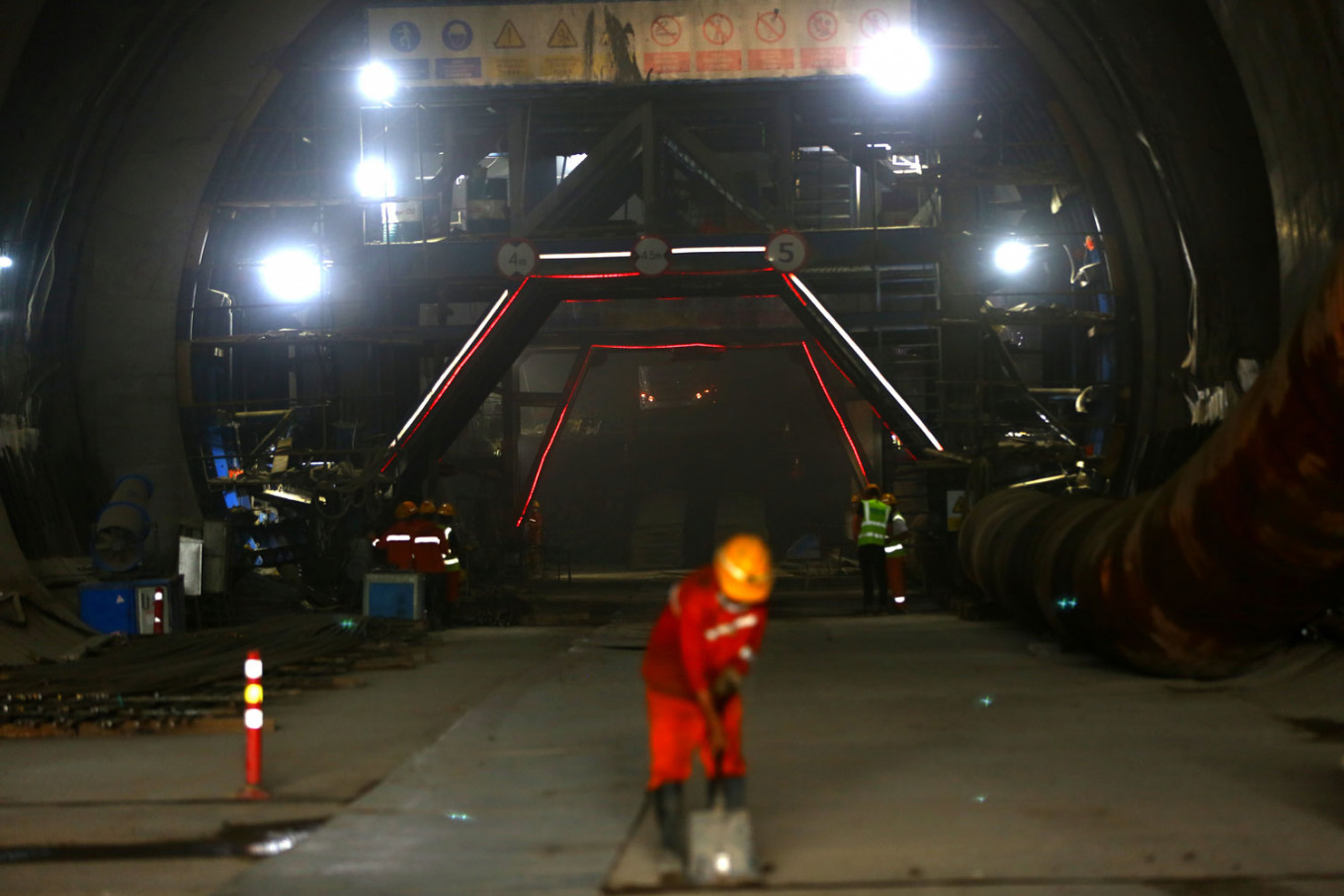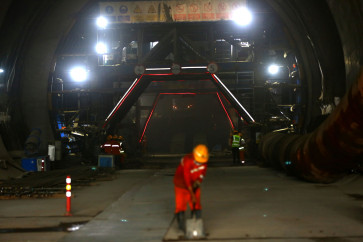Popular Reads
Top Results
Can't find what you're looking for?
View all search resultsPopular Reads
Top Results
Can't find what you're looking for?
View all search resultsAnalysis: KCIC requests concession extension due to low demand, competition
Change text size
Gift Premium Articles
to Anyone
T
he Jakarta-Bandung high-speed railway (HSR) service is expected to see lower demand than initially projected. At its inception, the Jakarta-Bandung HSR was estimated to transport 60,000 passengers per day, but a new study conducted after the emergence of the COVID-19 pandemic has cut the estimate by half. This means that the new railway services needs around 80 years to break even and start making a profit.
PT Kereta Cepat Indonesia China (KCIC), a joint venture between Indonesian and Chinese state-owned enterprises (SOEs), asserted that the COVID-19 pandemic had significantly impacted the transit project in many aspects, from infrastructure development costs to railway passenger projection and to operations strategy and management.
The Indonesian economy has seen conservative growth of around 5 percent in the last four quarters, after it rebounded from a contraction that had lasted from the second quarter of 2020 until the first quarter of 2021.
This had resulted in reduced passenger demand for the HSR service than initially forecast. Meanwhile, the KCIC could no longer take into account potential revenues from transit-oriented development (TOD) projects, as the company needed to instead focus on solving the cost overrun of the HSR project.
The demand forecast was conducted by the University of Indonesia Center for Testing, Measurement, Training, Observation and Engineering Services (Polar UI) using a stated preference survey involving 1,829 respondents in Greater Jakarta. The survey results indicated a demand forecast of slightly over 30,000 potential HSR passengers in 2023, assuming economic growth of 5 to 6 percent.
The Jakarta-Bandung HSR will also be competing for passengers against existing transportation modes. The most preferred transportation to travel between Jakarta and Bandung is private car at 59 percent, followed by intercity shuttle or chartered car at 18 percent, by train at 16 percent, and finally by bus at 7 percent. These estimates were obtained from observing 259,495 travelers between Jakarta and Bandung on a single day, with up to 11 percent of travelers expected to shift to the Jakarta-Bandung HSR.
Traveling by car or bus between Jakarta and Bandung grew in popularity after the Jakarta-Cikampek II Elevated Toll Road opened, which cut travel time to a minimum 45 minutes, while the upcoming South Jakarta-Cikampek II Toll Road is expected to reinforce the trend.



















